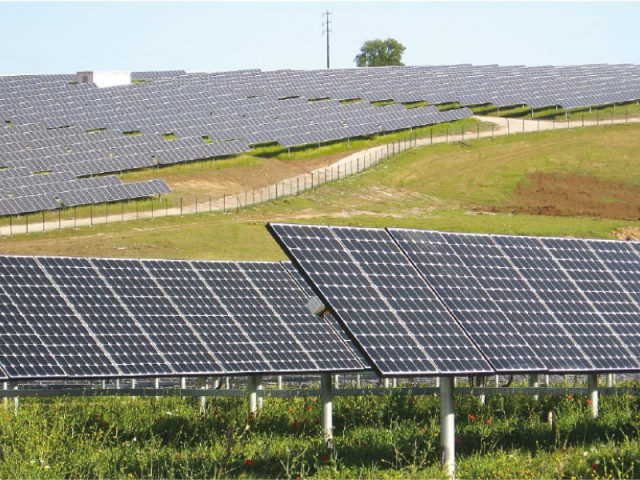Encouraging captive power generation
This may be Pakistan’s only solution to the power crisis.

Encouraging captive power generation
Given the increasing use of generators to cope with the power cuts, the use of diesel-run engines by farmers to irrigate their crops and fields, and now the use of small power generating units in the manufacturing industry, privatisation of the power generation has already taken a new turn. Households, farmers and some industrial units have now started producing electricity for their own use on a limited scale. If the power cuts continue, it is expected that this emerging trend will give rise to thousands of small units producing power to meet household and industrial demand for electricity on a local level. A parallel example of such kind of development can be traced in the emergence of cable operators’ networks and the emergence of private television channels in Pakistan. A similar example is in the form of mushrooming of the business of mobile phones, the Internet and related services.
From this development, the government must come up with a policy to develop local grids that must on one hand side be linked to the national grid and on the other hand side should be linked to the households and small producers of power. This would work effectively with the development and promotion of solar energy on a household level. In phase one, in big cities like Karachi, Lahore, Rawalpindi etc., households can be encouraged to install solar panels (on the roof tops) and other small plants for renewable energy for their own consumption and possibly for supplying to the national grid through local grid stations. In developed countries like Germany, this model has successfully been implemented, and there is a need to develop a similar model for Pakistan.
One possible route that the government may take is to turn a blind eye on the small-scale production of electricity in the private sector. This will allow a new business to emerge in the country without any additional costs to the government. This certainly has implications in terms of environmental impact, if the private sector uses oil and gas for the production of electricity. Moreover, there will be major efficiency losses due to diseconomies of scale. These environmental costs, however, must be ignored in the short to medium run to reduce the current crisis-like situation in the power production sector. However, in the long run, an environment friendly model could be developed to use solar and renewable energy.
The real benefit of this pre-regulation period would start emerging when the solar and renewable energy producing companies enter into the retail market. There are scores of companies (small, medium and large) that contemplate entering the Pakistani market, but are unsure about the viability of their investments due to political instability, lack of clarity of policy on part of the government and almost non-existence of incentives for the entry.
The government must develop a clear policy and regulatory guidelines to ascertain the interested investors who are otherwise not sure if their investments will be safe and economically worthwhile in case the government continues with its own control and monopolistic position in the production and specially distribution of power.
A clear policy towards this sub-sector must be developed and adopted. Let us not waste our time and energy on the projects like Kalabagh Dam that has seen decades of lack of political consensus and, hence, remains a distant reality that may actually never come into existence.
The writer is an economist and PhD from Cambridge University.
Published in The Express Tribune, April 9th, 2012.



















COMMENTS
Comments are moderated and generally will be posted if they are on-topic and not abusive.
For more information, please see our Comments FAQ